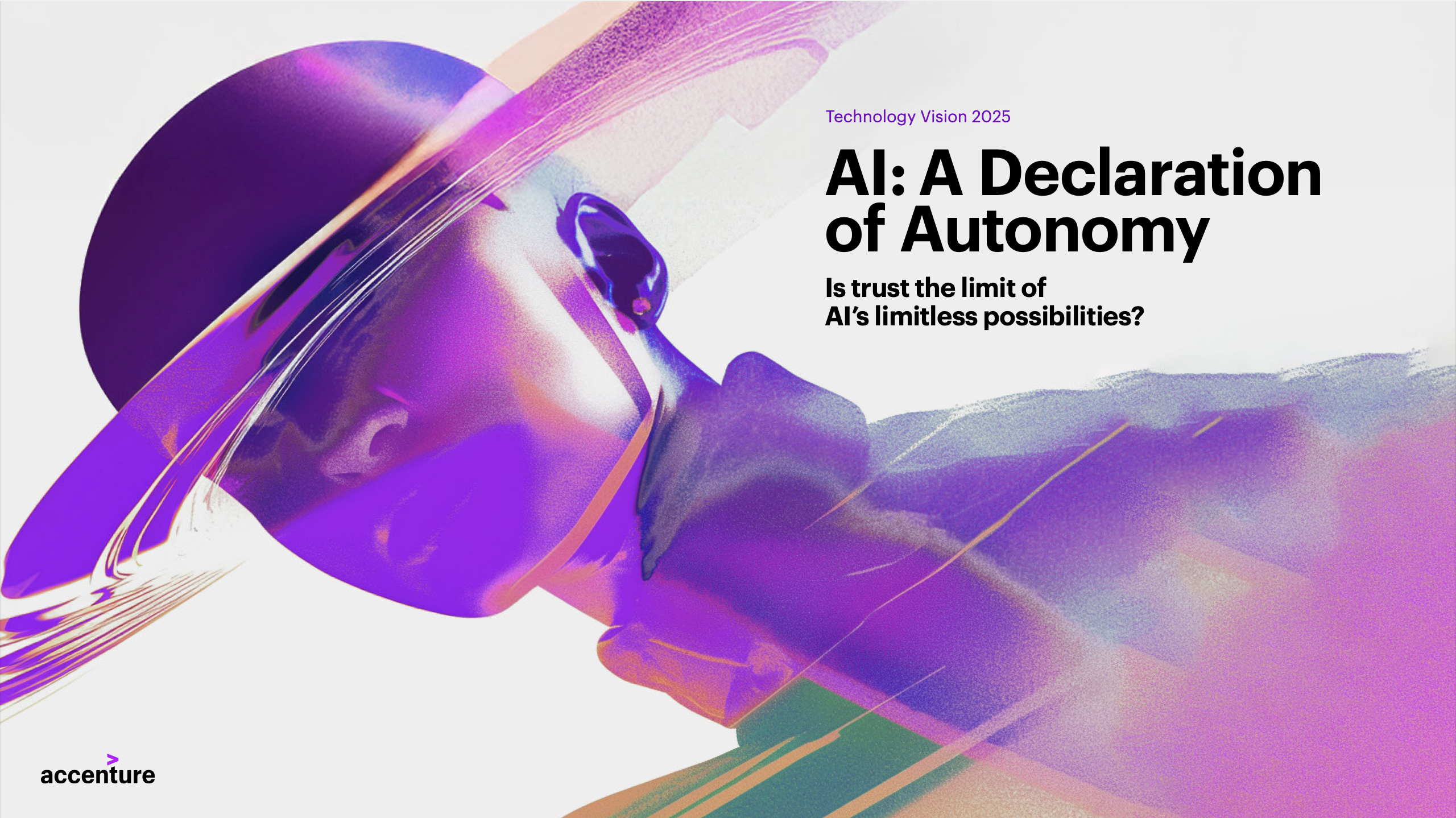A new era of business operations driven by artificial intelligence is on the horizon, promising levels of autonomy previously unimaginable. This is the central finding of “Accenture Technology Vision 2025” report, released earlier this week.

The research highlights a rapidly unfolding digital landscape where AI continuously learns, adapts, and independently manages crucial business functions, impacting everything from technology development to customer interactions and the global workforce.
The report, based on surveys of over 4,000 executives across 21 industries and 28 countries, reveals a strong consensus among business leaders about the transformative power of AI. A significant 69% of executives believe the accelerating diffusion of AI necessitates an urgent reinvention of technology systems and the processes they underpin.
This new wave of AI is predicted to evolve into a multifaceted partner, acting as a co-developer of technology, a personalized brand representative, the intelligence behind physical robots, and a collaborator that enhances human capabilities.
Accenture’s technology vision: Autonomous AI requires trust

Julie Sweet, chair and CEO of Accenture, emphasized the profound implications of this shift.
“Our 25th Technology Vision gives leaders a look into what’s ahead when AI continuously learns, acts autonomously with and on behalf of people, and pushes enterprises and the people who use it into new and exciting ways to continuously reinvent,” said Julie Sweet, chair and CEO, Accenture.
However, Sweet cautioned that unlocking AI’s full potential hinges on leaders establishing and developing trust in its performance and outcomes.
The report underscores that trust in AI, encompassing its just and predictable operation, is paramount for widespread adoption and positive impact. An overwhelming 77% of executives agree that the true benefits of AI will only materialize on a solid foundation of trust, with 81% acknowledging the need for trust strategies to evolve in tandem with technology strategies.
Karthik Narain, group chief executive – Technology and CTO at Accenture, elaborated on the underlying technological advancements. “Advancements in digitizing knowledge, new AI models, agentic AI systems and architecture enables enterprises to create their own unique cognitive digital brains,” he explained.
“While conventional technologies have long supported pre-determined business needs, this is a generational moment of transition. The autonomy created by these generalized AI systems can help organizations be more dynamic and intention-driven than ever. It will allow leaders to rethink how digital systems are designed, how people work, and reinvent how they create products and
interact with customers,” he further stated.
This transition marks a generational shift from traditional technologies supporting predetermined needs to autonomous AI systems capable of driving dynamic and intention-driven operations. Narain stressed that while AI offers unprecedented autonomy, its effectiveness will ultimately be limited by its trustworthiness.
In line with this, Accenture recently unveiled a Generative AI Scholars Program with Stanford Online to help clients sharpen GenAI knowledge and skills. Organizations have the opportunity to equip every employee with a talented digital sidekick, one that will allow people to tap into new
skills and grow use of GenAI tools. Organizations, in turn, will reap the benefit too, as individuals
familiar with GenAI were found to be five-times more likely to have a positive perception of the
technology.
Beyond automation: Exploring GenAI’s potential to reinvent business functions

The “Accenture Technology Vision 2025” delves into the specific ways generative AI is poised to revolutionize key business areas:
- Reinventing technology development: Generative AI coding assistants are already augmenting developers’ roles, democratizing code creation, and facilitating a shift towards intention-based frameworks and intelligent agentic systems capable of managing complex processes and functions.
- Elevating customer experience: While concerns exist about AI homogenizing brand voices, the report suggests that brands can differentiate themselves by proactively injecting unique brand elements into AI interactions, creating personalized and engaging experiences.
- Transforming the physical world: The emergence of general-purpose robots with the ability to rapidly learn new tasks will bring increased AI autonomy to physical operations, enabling seamless human-robot collaboration in areas like warehouse logistics.
- Empowering the global workforce: The interaction between humans and AI is creating a virtuous learning loop, where increased AI usage leads to continuous improvement and greater user adoption. Organizations prioritizing a positive human-AI relationship and investing in employee AI literacy are likely to see significant benefits.
The findings of the “Accenture Technology Vision 2025” are based on extensive research, including insights from an external advisory board and comprehensive surveys of both business executives and consumers conducted between October and December 2024.
The report serves as a crucial guide for business leaders navigating the rapidly evolving landscape of AI-powered autonomy and the imperative of building trust to unlock its transformative potential.






